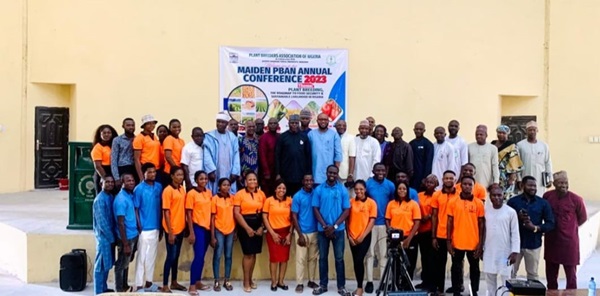
The Plant Breeders Association of Nigeria (PBAN) has urgently called for sensitisation on the potentials of plant breeding for food and agriculture to meet Sustainable Development Goals (SDGs) in Nigeria.
The association made this call during the hybrid conference of the PBAN, held in collaboration with Joseph Sarwaun Tarka University in Benue State, highlighting the need for collaborations with relevant stakeholders along the crop value chain to maximise the benefits of plant breeding.
During the maiden annual conference, director-general of the National Biotechnology Development Agency, Prof. Abdullahi Mustapha addressed the PBAN, emphasising that generating micro-nutrient-dense crops through biotechnology is more effective, sustainable and realistic. He stressed that biotechnology has the potential to boost agricultural harvests and expand accessibility to climate-smart agriculture.
Mustapha stated, “Biofortification provides bountiful harvest continuously at comparatively low costs after one-time initial breeding investment”. However, he acknowledged that effective post-harvest storage and delivery mechanisms are crucial to avoid losses of biofortified products along the value chain. The director-general pledged that NABDA would continue its efforts, provided a conducive policy environment is maintained.
Presenting a lead paper on the potentials of plant breeding toward sustainable development goals in Nigeria, S.G Ado and M.L Umar from the department of plant science of the Institute for Agricultural Research, Ahmadu Bello University (ABU) Zaria, emphasised Nigeria’s heavy reliance on agriculture for its economy. They discussed the contributions of Nigerian plant breeders to national food security and stressed the need for collaborations along the crop value chain to harness plant breeding potentials for meeting SDGs in Nigeria.
The duo highlighted key recommendations, including supporting the development of improved varieties, aligning policies, boosting private sector finances and connecting food and environmental agendas in food systems transformation. Additionally, they addressed the challenges of inadequate food utilisation among vulnerable groups, advocating for increased accessibility to quality food, availability and affordability, safe water and dietary diversification.
The conference also covered the importance of regional trade of seeds among West and Central African countries to make quality seeds accessible to farmers. It recommended a review of breeding strategies and priorities crop-by-crop and region-by-region to ensure relevance to future challenges.
Another presentation on the global assessment report on biodiversity and ecosystem services revealed significant alterations in land-based and marine environments due to human actions. The report recommended breeding with known wild cultivars to increase genetic viability.

